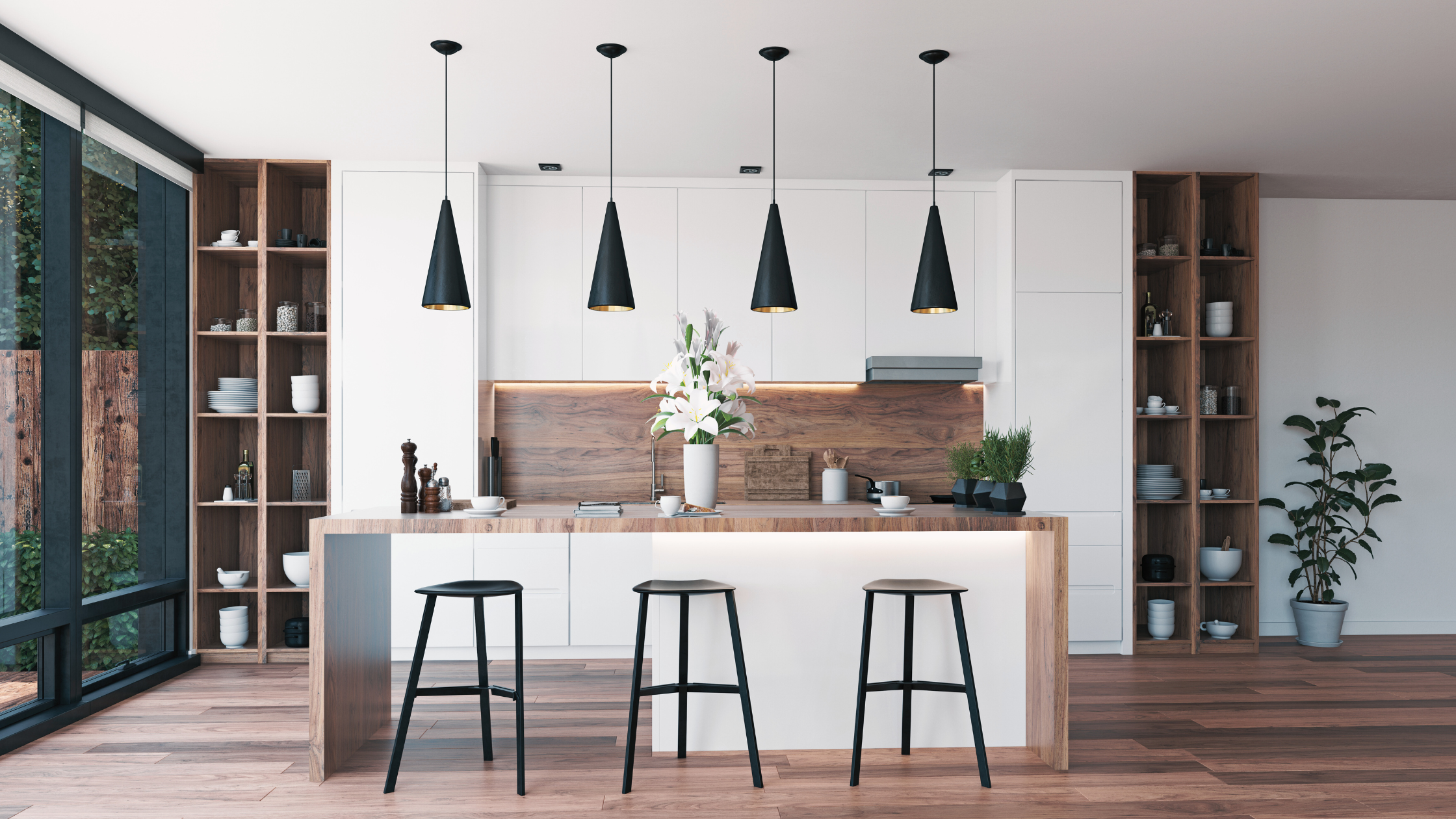Hardwood floors are a premium feature that many buyers actively seek when shopping for their next home. A well-maintained wooden surface can elevate your property’s value and create a warm, timeless look that buyers are willing to pay extra for.
Some homeowners invest thousands of dollars in refinishing their wood surfaces—sanding, sealing, and polishing—to ensure the home makes a dazzling impression. It’s a big job. You’ll need to remove all your furniture and potentially be out of the house for a few days.
But from a real estate standpoint, this kind of investment can truly pay off.
Over time, the natural beauty of a hardwood floor can fade, especially if it’s not properly cared for. The kitchen tends to take the brunt of daily wear and tear, with its heavy foot traffic, water spills, and hot food accidents. But even outside the kitchen, improper cleaning techniques and furniture placement can do more harm than good.
However, many homeowners unknowingly cause damage through poor maintenance habits. If you want your hardwood floor to shine for years—or make a killer impression when it’s time to sell—be sure to steer clear of the following mistakes.
1. Don’t Let Shoes Destroy Your Hardwood Floor
Shoes carry dirt, grit, and debris that can grind into the wood’s finish. High heels, in particular, are notorious for leaving dents. Even if your shoes appear clean, they can still wear down the finish and reduce the visual appeal of your flooring.
If possible, make your home a shoe-free zone. Provide a shoe rack near the entryway and consider offering cozy slippers to guests as an alternative. This simple habit can significantly extend the life of your hardwood floor.
2. Protect Your Hardwood Floor From Furniture Legs
Furniture legs—especially from chairs, coffee tables, and dining sets—are a silent destroyer of flooring. When these legs aren’t padded, they can leave scratches, scuffs, and dents behind.
To prevent this, attach felt or rubber pads to the base of every furniture leg. Check them regularly, as pads wear down over time and may need replacing. Also, avoid dragging furniture across your hardwood floor. Instead, lift and carry it, or use sliders for heavy items.
3. Avoid Using Vinegar on Your Hardwood Floor
Many DIY cleaning tips suggest vinegar as a natural cleaner, but it’s far too acidic for hardwood. Over time, it can strip away your floor’s finish, dulling the shine and leaving the wood vulnerable to moisture damage.
Stick with pH-neutral cleaners made specifically for wood. A diluted solution of dish soap and warm water is a safer alternative if you’re in a pinch. For best results, purchase a cleaner from a reputable flooring or hardware store.
4. Never Over-Water Your Hardwood Floor
When mopping, avoid using excessive water. Wood naturally expands and contracts with moisture, and too much water can cause planks to warp, swell, or separate.
Use a barely damp microfiber mop for regular cleaning. Wring it out thoroughly before use, and always dry the floor afterward with a clean, dry cloth. This helps preserve the integrity and beauty of your hardwood floor while still keeping it clean.
5. Be Cautious With Pet Cleanup Products on Hardwood Floors
Accidents from pets are inevitable, but many commercial enzyme-based cleaners can cause unexpected damage. These products often strip oil-based finishes or discolor the wood.
To avoid damage, stick with pH-neutral solutions and clean up spills as quickly as possible. Keep a dedicated hardwood floor cleaner on hand for emergencies, especially if you have young pets or aging animals.
Final Thoughts on Hardwood Floor Maintenance
A little awareness goes a long way when caring for natural wood surfaces. With proper care, your hardwood floor can remain a valuable, beautiful feature in your home for decades. Regular maintenance, smart habits, and using the right products will help you avoid costly repairs—and impress buyers if you ever decide to sell.
If you’re wondering whether refinishing your floors before listing is worth it, let’s talk. We’re happy to help you evaluate how your hardwood floor factors into your home’s value in today’s market.
Table of Contents
Toggle


